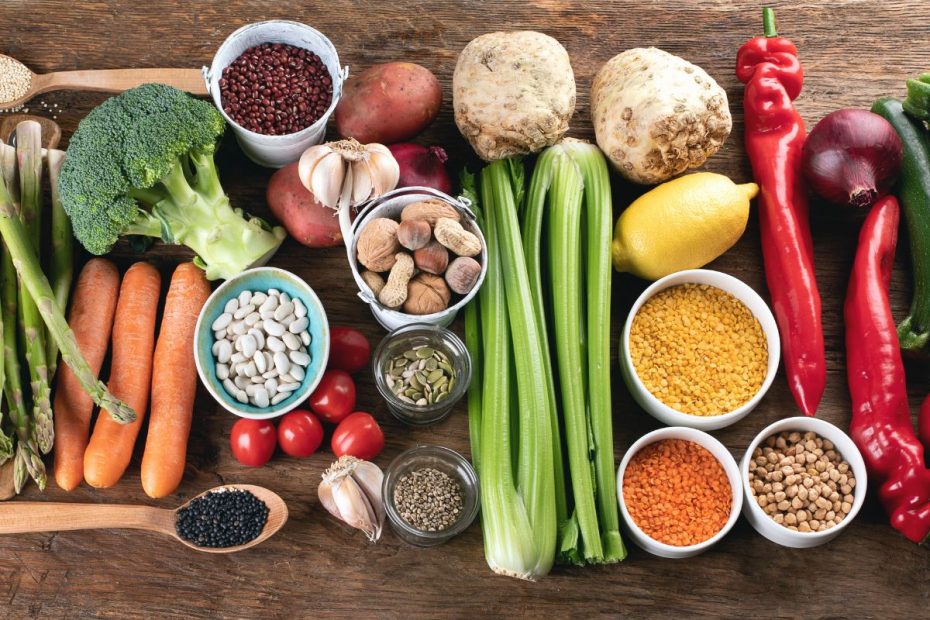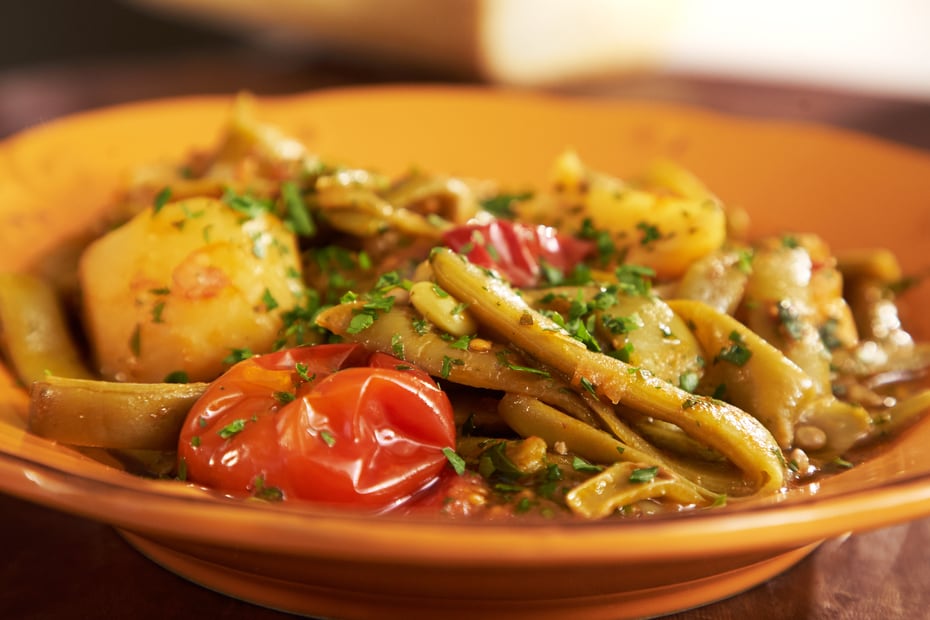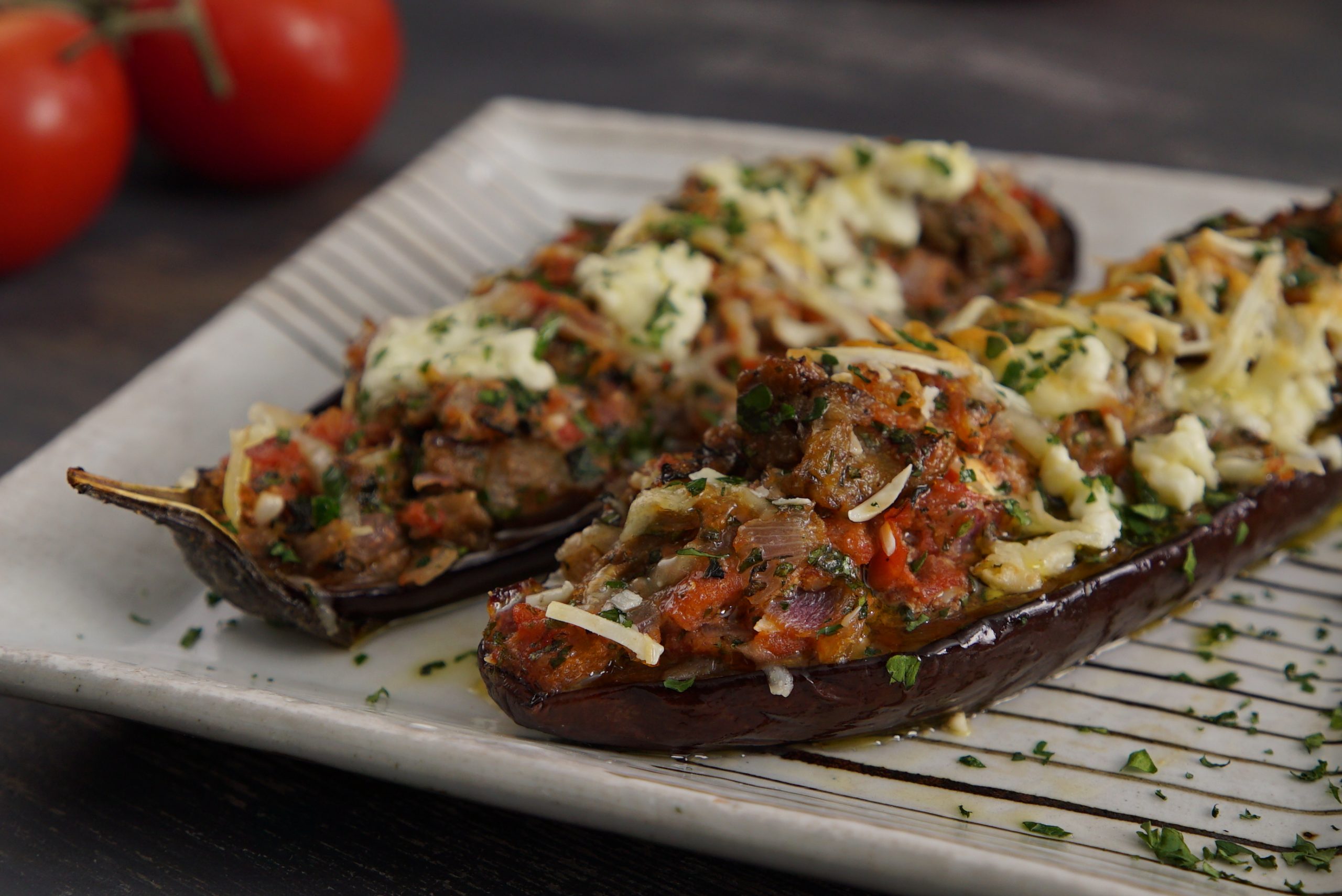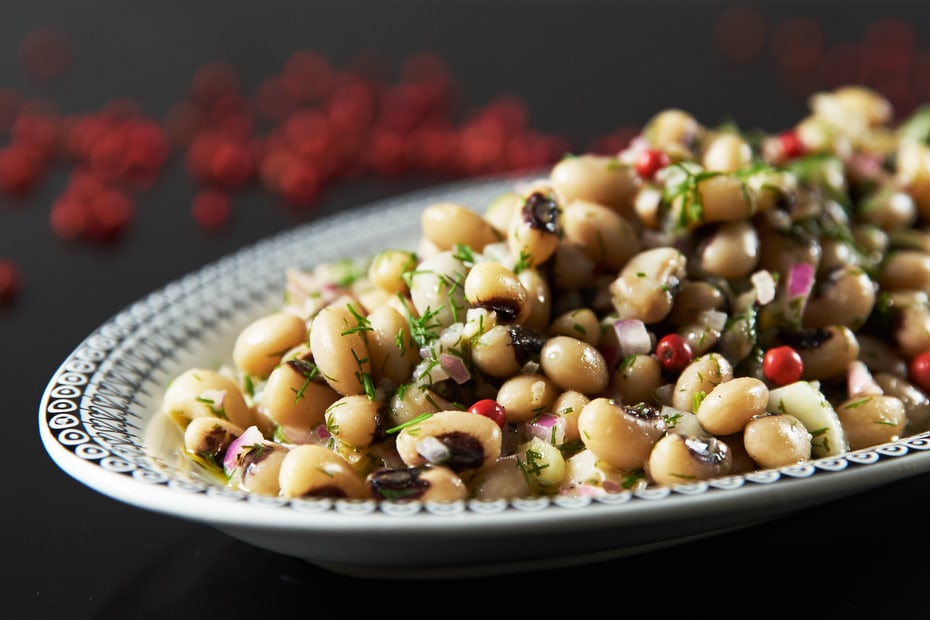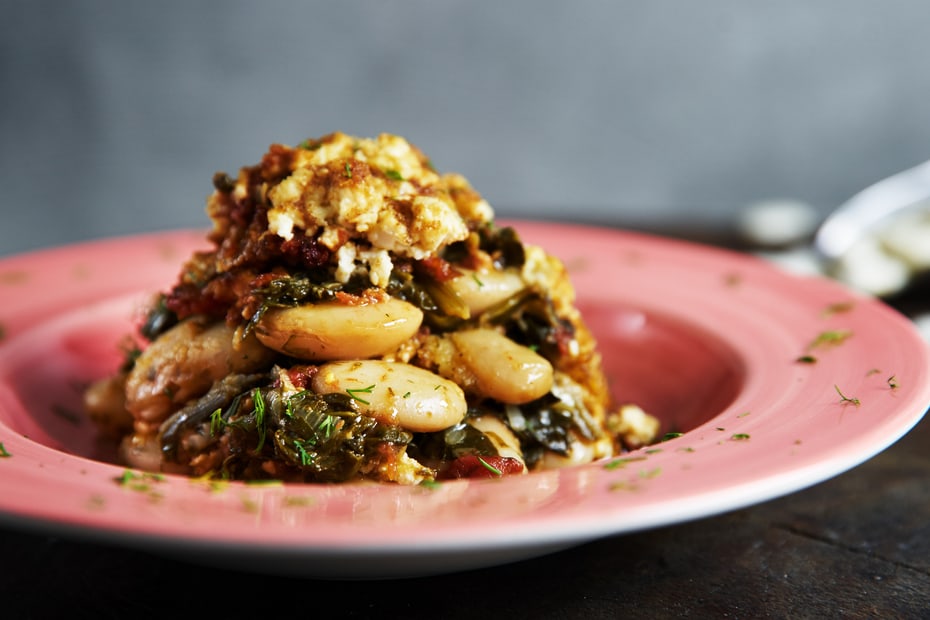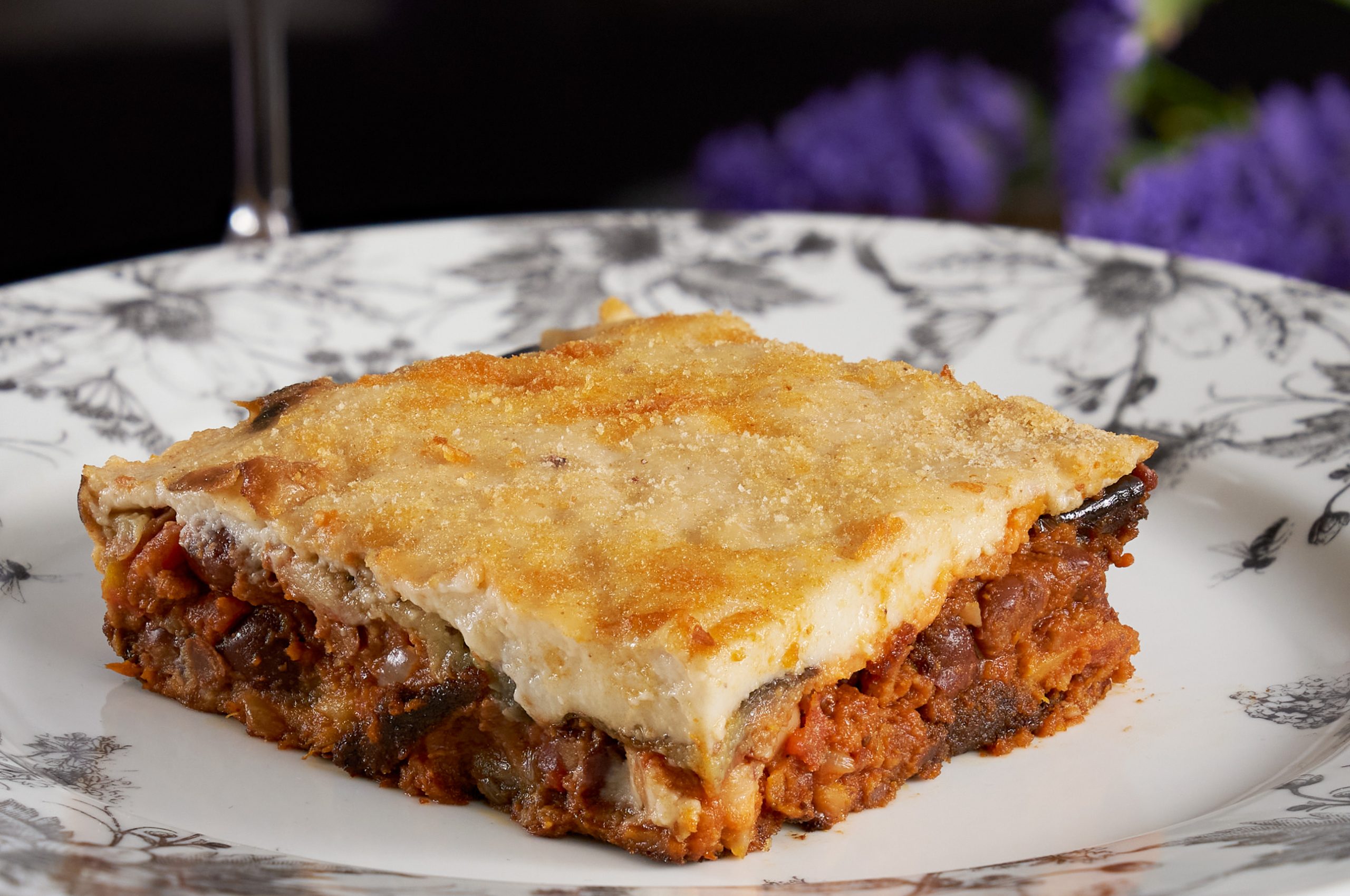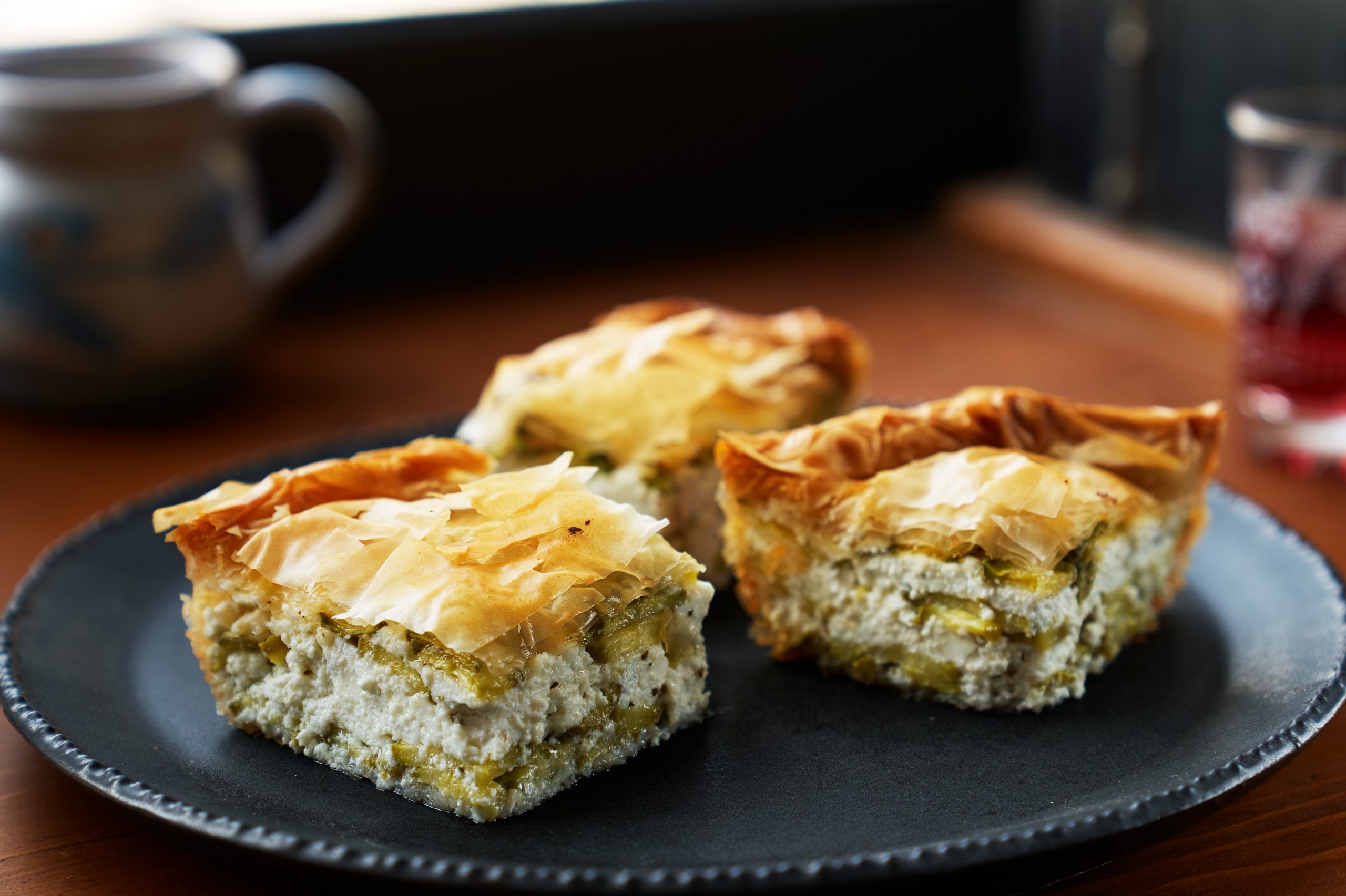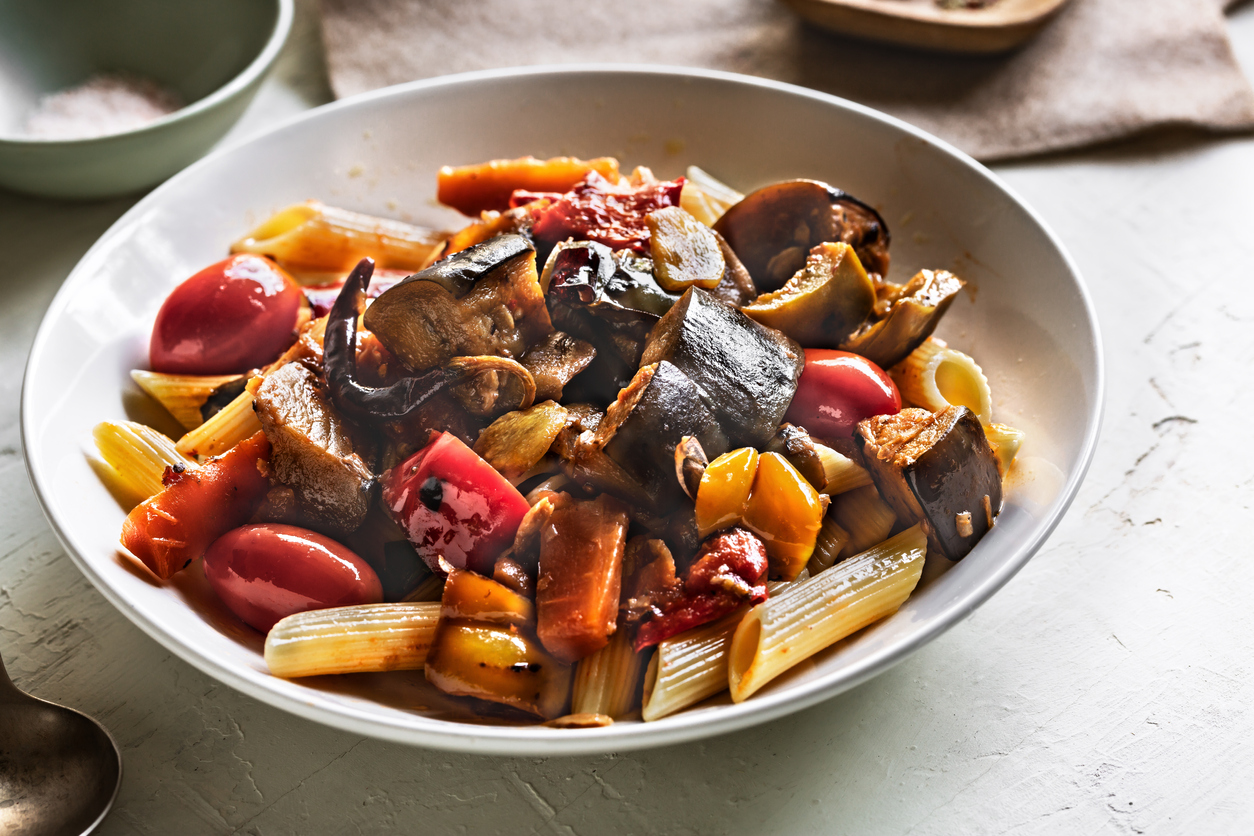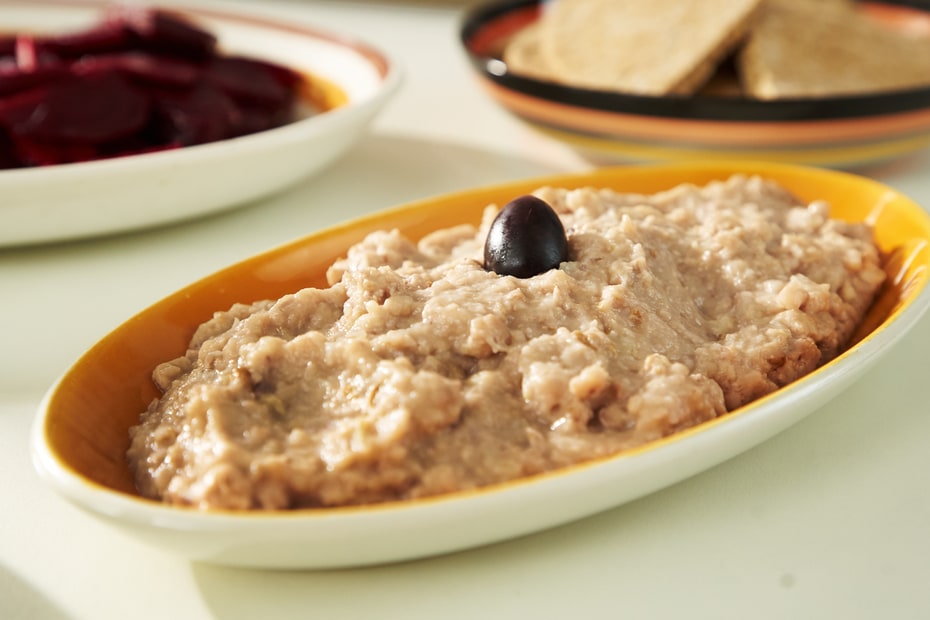Here in the Mediterranean, we’re all about a good vegetarian recipe! And luckily, Greece is the place to go to indulge in veggie-forward dishes that are luscious, flavorful, and filling. Greek cuisine boasts an abundance of vegetarian options, ranging from rich stews and subtly seasoned stuffed vegetables to various soups, salads, and pilafs. It might be surprising to associate a culinary tradition renowned for dishes like spit-roasted goat, lamb, and skewered kebabs with a robust vegetarian heritage. However, Greece’s love for legumes, vegetables, and grains has deep historical roots, with factors including religion, economy, and seasonality playing a key role.
If you want to up your vegetable cooking game and get more vegetarian dishes on your table, there are a few key ingredients and cooking techniques that make vegetarian cooking (the Greek way) totally easy and harmonious. Olive oil, beans, herbs, anything that grows seasonally, and nuts are all crucial to the success of these dishes. And a pro tip: all of my vegetarian recipes can get a little boost from a slab of Greek feta on the side. There are health reasons to pick this cheese – it’s packed with calcium, and it also has high levels of phosphorus – but beyond that, it’s the best way to add a hint of tang and flavor to so many dishes!
Scroll on to find out more about these ingredients and techniques.
Olive Oil
Yes, olive oil is perfect for drizzling on top of a final dish or salad – but once you start thinking of olive oil as a crucial cooking fat and flavoring agent, you’re on the right track to making any vegetarian dish better. It’s often used in slow-cooked Greek vegetarian recipes, where natural sugars develop and add a certain craveability, paired with a healthy fat content! In fact, we have a whole category of these slow-cooked olive oil dishes, called “lathera,” which means “olive oil-based.” One of the most classic examples of this is Fasolakia Yiahni, or Green Beans in Tomato Sauce, an easy, luscious casserole of fresh beans slowly cooked in olive oil, with tomatoes, onions, potatoes and herbs.
I also love Eggplants Stuffed with Onions, Raisins, and Grape Molasses, a riff on a classic dish, Imam Bayldi. And these Peas in a Pot with Fennel, Sun-dried Tomatoes and Mussels are an even more contemporary take, combining slow-cooked peas with mussels.
Beans
There are an enormous variety of bean dishes all over the Mediterranean, but especially in Greece: chickpeas, black eyed peas, and giant beans are just a few that you’ll find regularly on Greek tables. And there are so many reasons to get more beans in your life: adding beans and pulses into your everyday recipe rotation is proven to increase longevity, and they’re a simple, healthy, and economical way to care for your body.
This Mavromatika Salata is a great Greek salad recipe, dressed with extra virgin Greek olive oil and the superfood Greek spice mastiha. Giant beans, aka gigantes (GHEE-ghan-tez), are a classic Greek ingredient and popular in Greek recipes from every part of the country, and my Messinia Style Giant Beans Baked (Gigantes) with Spinach & Feta are a wonderful way to enjoy them.
Lentils make a great addition to soups, like this recipe for Lentil-Sweet Potato Soup with Spinach and Sage. And the traditional Greek salad gets a protein-packed makeover in my Greek Salad with Chickpeas, Tomatoes, Cucumbers & Feta.
Herbs
Greek cuisine is undeniably characterized by its herbal palette, with herbs taking center stage in most dishes. Loading up on herbs (dried or fresh!) really ups the freshness and robustness of the dish, and Greek herbs like oregano and mint have an intense and recognizable flavor. In fact, some of these herbs are basically synonymous with certain dishes – you can’t make meatballs without oregano, for instance! My Lentil Moussaka is a great vegetarian recipe that calls for dried oregano, and these Tomatoes Stuffed with Seafood really up the ante with lots of Greek oregano.
And mint gets the Greek treatment in my Phyllo Pie With Zucchini, Feta & Mint, with a delightful freshness that cuts through the richness of the cheese and phyllo. It also blends beautifully with tomato and feta in this recipe for Greek Pizza with Heirloom Tomatoes, Greek Honey and Feta.
In-Season Vegetables
This is probably the most important takeaway for vegetarian cooking – the vegetables! They should always be in season and stocked at your local market. In summer, you can enjoy anything with tomatoes, zucchini, and eggplants; in fall, you’ll transition to squashes like butternut squash and pumpkin; spring is all about greens (that you can use a million ways!); and root vegetables for winter, like beetroot, potatoes, and carrots.
Nuts
Nuts and seed have been an indispensable part of the Mediterranean-Greek Diet for millennia. They grow abundantly throughout Greece, and their high fat and protein content makes them both accessible and satiating—not to mention delicious! And when it comes to vegetarian cooking, they’re crucial, cropping up in all kinds of traditional and contemporary recipes. Nuts can be used as a thickener for sauces, like in vegetarian versions of keftedes where the nuts replace ground meat (but you wouldn’t’ even know it, the texture is so similar!), or in this Walnut Skordalia – Garlic Dip. Who needs ground soy meal when you can use mineral- and vitamin-packed walnuts!
